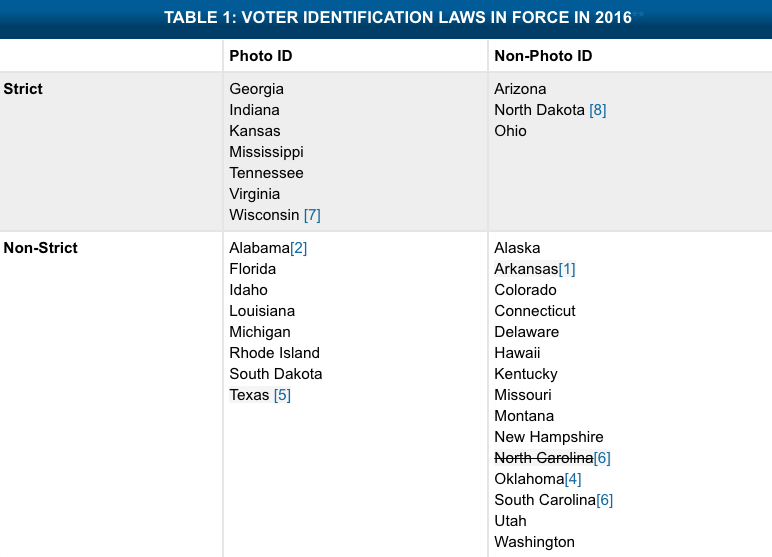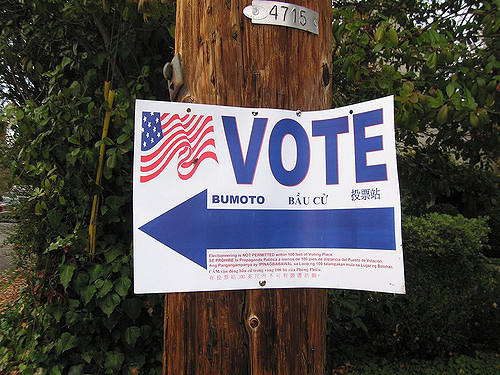The Other Group That's Being Hurt by Voter ID Laws

By:
The act of voting in the U.S. has historically been difficult for certain Americans, but there's one group that should be getting more attention.
Polling locations often doubled as civil rights battlegrounds for minorities throughout American history. And the national discussion on restrictive voter ID laws often focuses on the law's affect on minorities and the poor.
However, Broadly's Diana Tourjee reports that voter ID laws are restricting another group's right to vote: transgender Americans.
Restrictive voter ID laws could keep 34,000 transgender people from voting next week, according to a report by The Williams Institute at th UCLA School of Law.
“Lawmakers and election officials should not overlook the impact on transgender voters when enacting voting restrictions based on identity documents,” said study author and Williams Institute Scholar Jody L. Herman in a press release. “Voter ID laws impact many citizens who would otherwise be eligible to vote. Transgender people have unique, and sometimes insurmountable burdens to obtaining accurate IDs for voting in states that require it.”
Thirty-two states require some sort of identification in order to vote, according to the National Conference of State Legislatures, including 15 that require photo identification.
 Voter ID Requirements - ncsl.org
Voter ID Requirements - ncsl.org
This can make voting difficult for transgender people, who may no longer resemble the photo on their ID.
 Flickr/hjl - flic.kr
Flickr/hjl - flic.kr
"If a transgender individual does not closely resemble the picture that is on the photo ID, it can be quite an onerous process to get a new ID," Sean Young, a senior attorney for the ACLU's Voting Rights Project told Broadly. "If there is [a] gender marker on the ID which does not reflect the transgender person's true gender, depending on the laws of the state, they may have to get their gender officially recognized by the government, which can be complicated."
In states like Wisconsin, transgender people would have to get a court order to change their name, update their information with their Social Security office, and get a doctor's letter that recommends a different gender marking on government identification. Then they can get a court order for a different gender marker, according to Broadly.
In Alabama, the law requires that transgender people have gender reassignment surgery in order to legally change their name and gender on their license, according to the National Center for Transgender Equality. To be clear, someone can be transgender without having genital surgery. Even if a transgender person wants to have the surgery it can cost anywhere from $7,000 to $50,000, according to Live Science.
Voters lost some important protections.
The 1965 Voting Rights Act required federal pre-clearance before states with a history of voter discrimination changed their voting laws. In 2013, the U.S. Supreme Court's decision in Shelby County v. Holder, stripped the VRA of those significant provisions for minority voters. This will be the first presidential election without those protections.
There are 868 fewer polling places next week in the states that were previously under federal watch, according to the Nation.
